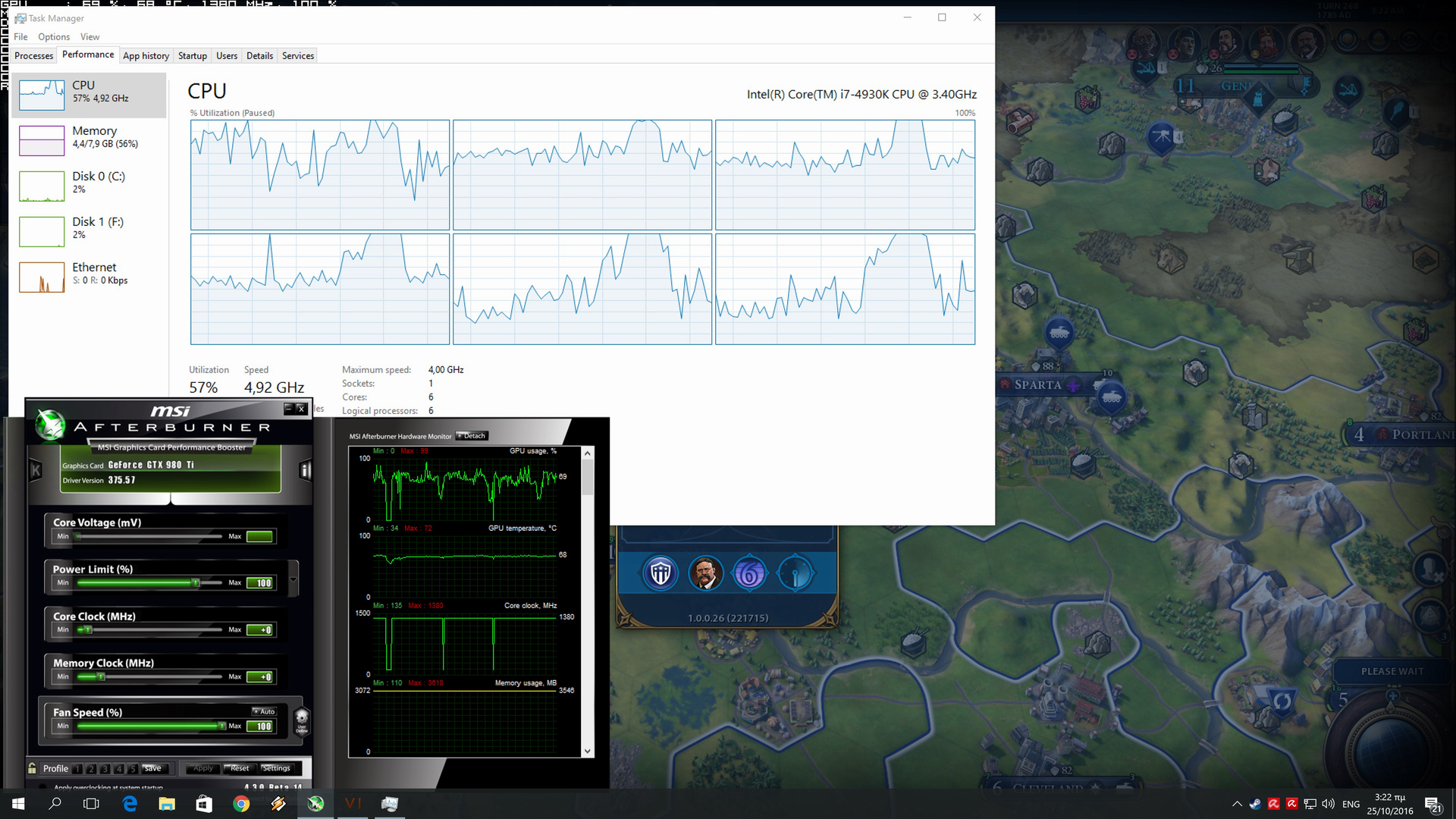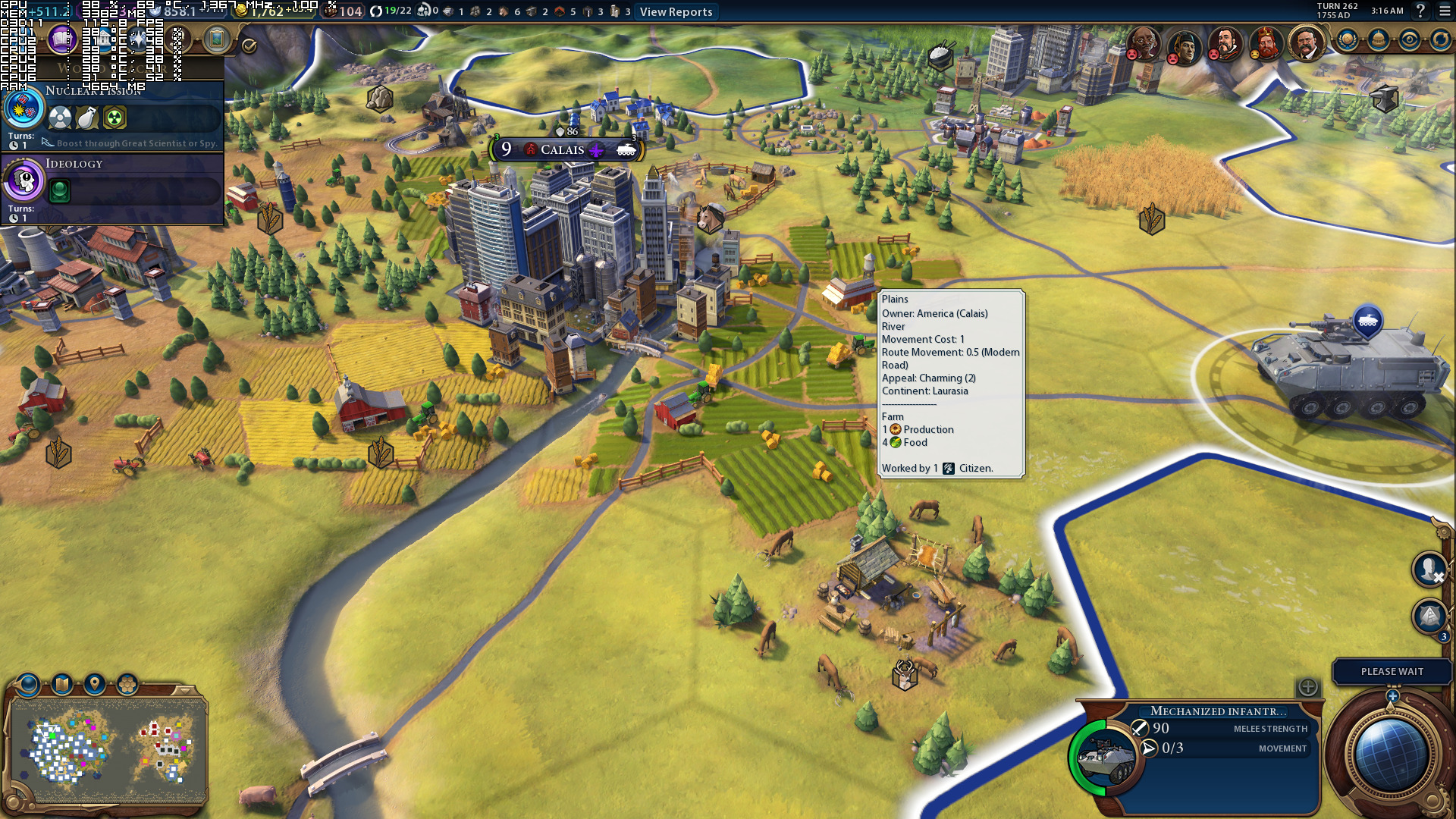PC gamers were really excited when 2K Games and Firaxis announced the next part in the Civilization series as there haven’t been a lot of triple-A strategy games lately. Sid Meier’s Civilization VI has just been released and 2K Games was kind enough to provide us with a review code, so it is time now to see how this title performs on the PC platform.
For this PC Performance Analysis, we used an Intel i7 4930K (turbo boosted at 4.2Ghz) with 8GB RAM, NVIDIA’s GTX980Ti and GTX690, Windows 10 64-bit and the latest WHQL version of the GeForce drivers. NVIDIA has already included an SLI profile for this title so you won’t have to mess around with the NVIDIA Inspector Tool in order to enable it.
Civilization VI is powered by a new in-house engine and even though Firaxis announced that it had teamed up with AMD in order to add support for DX12, there is no option to enable DX12. We don’t know whether Firaxis will add DX12 via a patch, however the game is currently supporting only DX11.
As you may have guessed, Civilization VI is mostly a CPU-bound title. As we can see, the game scaled well on all of our six CPU cores, however – with a few occasions – it did not really take full advantage of it.
In order to find out how the game scales on various CPUs, we simulated a dual-core and a quad-core CPU. We also tested the game via the in-game benchmark tool as it features a really demanding scenario.
Our simulated dual-core system was able to run Civilization VI with framerates ranging from 30fps to 80fps. However, there was severe freezes when the game was calculating all the available moves. Our simulated quad-core system was able to offer a better experience, with a minimum framerate of 44fps. And while the freezes were significantly reduced, they were not completely eliminated.
Our hexa-core system was able to completely eliminate our freezes, however it appears that the game suffers from some performance issues. As you can see in the following comparison, this particular scene from the benchmark ran exactly the same on our simulated quad-core and hexa-core systems. What’s really interesting here is that both the CPU and the GPU were underused on our hexa-core system.
For what it’s worth, both the GTX690 and the GTX980Ti were able to handle Civilization VI with over 60fps (well apart from aforementioned scene in which both of our GPUs were underused). Since this is a turn-based strategy games, a lot of PC gamers will be able to enjoy it, even with lower framerates.
Graphics wise, Civilization VI looks cool but there is nothing on screen to really ‘wow’ you. Take for example the following scene and try to convince someone that this not a Facebook or a mobile game. Yes, Firaxis went for a more casual look and the trained eye can easily notice the ambient occlusion effects and all the high-resolution shadows that are applied to objects. However when a game looking like this is running with only 115fps on a GTX980Ti, you kind of feel that something is wrong.
Firaxis has included a respectable amount of options to adjust. PC gamers can limit their framerate, enable/disable anti-aliasing and dynamic lighting, adjust the quality of Terrain, Shadows, Visual Effects, Overlay, Reflections and Ambient Occlusion. Furthermore, there are high-resolution options for Geometry, Textures, Shaders, Clutter and Water.
We should note, though, that we were unable to run the game in 4K. Whenever we were choosing a 4K resolution, the game was resetting to 1080p.
All in all, and given its turn-based nature, Civilization VI is a game that will run on a wide range of PC configurations. The game does suffer from various optimization issues as there are scenes in which both the GPU and the CPU are underused. In addition, owners of dual-core and quad-core systems will experience freezes when there are a lot of players participating and the game calculates all their moves.
Enjoy!

John is the founder and Editor in Chief at DSOGaming. He is a PC gaming fan and highly supports the modding and indie communities. Before creating DSOGaming, John worked on numerous gaming websites. While he is a die-hard PC gamer, his gaming roots can be found on consoles. John loved – and still does – the 16-bit consoles, and considers SNES to be one of the best consoles. Still, the PC platform won him over consoles. That was mainly due to 3DFX and its iconic dedicated 3D accelerator graphics card, Voodoo 2. John has also written a higher degree thesis on the “The Evolution of PC graphics cards.”
Contact: Email












